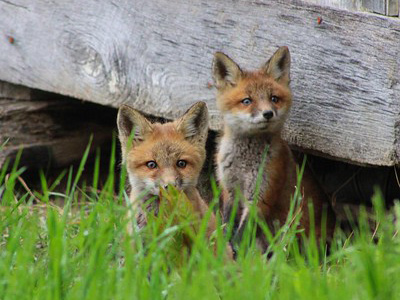‘Abandoned’ baby wildlife don’t need rescuing

Every spring, Fairfax County’s animal protection police and wildlife management office get lots of calls about young wildlife that appear to be orphaned or abandoned.
In most cases, these baby animals are not in danger and people should leave them alone.
Many species of wildlife hide their young for safety, leaving them alone for extended periods of time. Common wildlife frequently found and “rescued” in Fairfax County include squirrels, red foxes, raccoons, rabbits, skunks, opossums, and songbirds.
The only times humans should contact animal protection police, a wildlife rehabilitator, or a veterinarian is when an animal:
- shows signs of injury such as bleeding, swelling, or a broken limb;
- is very cold, shivering, thin, weak, or crying nonstop;
- is on the ground unable to move or is non-responsive;
- is featherless or not fully furred;
- shows signs of flies, worms, or maggots;
- was picked up by a cat or dog, even if no injuries are visible; or
- there is a dead parent nearby or parents are separated and cannot be reunited.
Animal protection police urge people not to handle or offer food or water to wildlife. Many young animals require special diets and inappropriate food or feeding techniques can lead to sickness or death.
Wild animals can also cause injury or carry parasites and disease, even at a young age. Human handling may cause unnecessary stress, result in trauma to the animal, and increase the risk of disease exposure to humans. Mammals could have rabies.
If you do come across a baby animal in distress, contact the Wildlife Rescue League Hotline at 703-440-0880 or the Animal Education and Rescue Organization. You can reach the Animal Protection Police through the police non-emergency number, 703-691-2131.
In Virginia it is illegal to possess a wild animal unless you have the proper license. The Virginia Department of Wildlife Resources maintains a list of permitted wildlife rehabilitators in Fairfax County.

